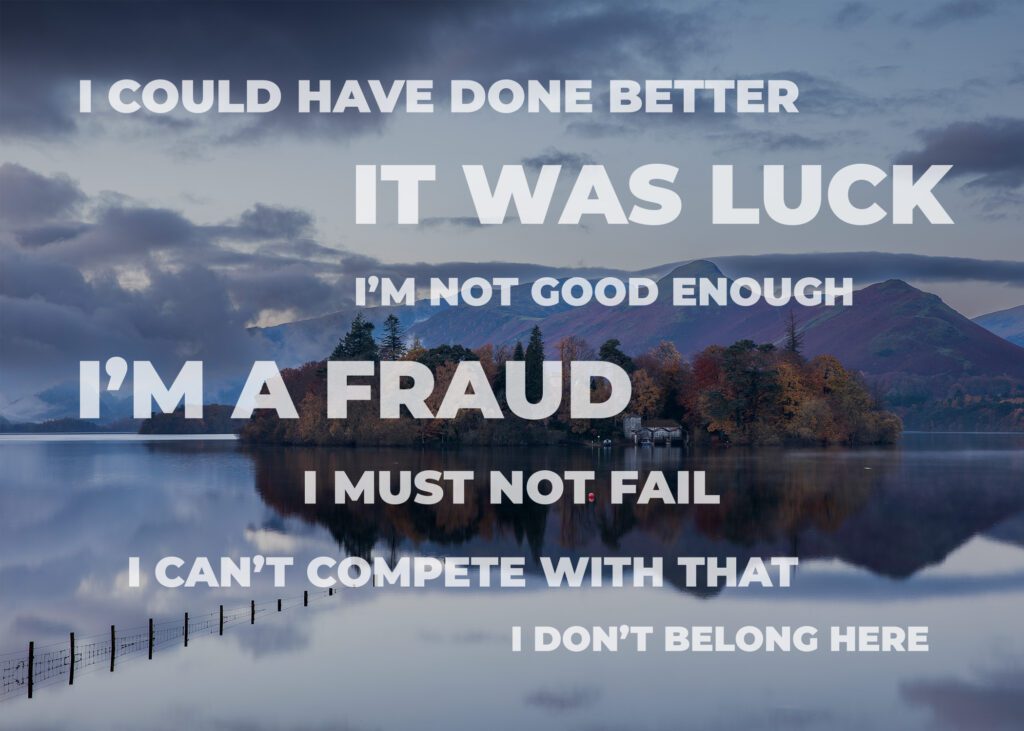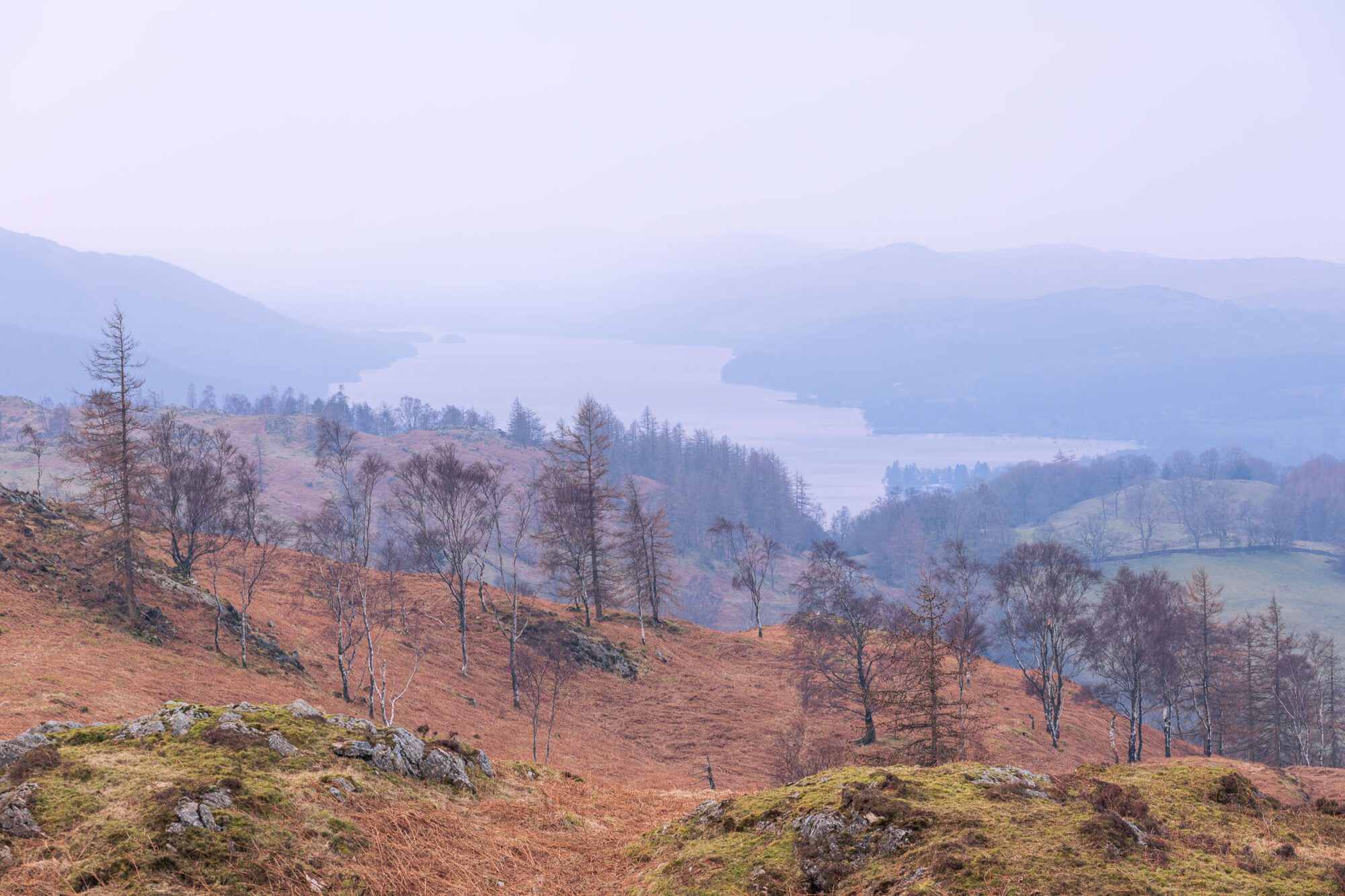It has been a few weeks since my last blog post, and there’s a good reason behind this. Over the past few weeks, I’ve struggled to muster the motivation to pick up my camera. The insidious feeling of not being good enough plagued my mind. It has been a challenge, but it’s nothing I haven’t tackled before. Yes, I suffer from imposter syndrome. Imposter syndrome in photography can be debilitating. But what is imposter syndrome, and how do I overcome it?
What Is Imposter Syndrome?
Imposter syndrome is a psychological occurrence in which sufferers question their every success. It is marked by a feeling of not belonging despite having the skills and achievements necessary to perform well.
Imposter syndrome can be defined as a collection of feelings of inadequacy that persist despite evident success (Corkindale, 2008)
Imposter syndrome in photography appears to be an increasingly common psychological phenomenon. I have given this some thought, and this is my belief. There are far fewer barriers to entry for photography these days. Technology has significantly advanced and is readily available. This means that anybody with access to a camera (mobile phone, DSLR, Mirrorless, compact, etc.) has the potential to produce incredible images. Of course, there are technical abilities to overcome, but these are less of a hurdle than in the pre-digital era. Couple this with the dominance of social media and you have a catalyst for imposter syndrome.

The Role Of Social Media And Its Impact On Imposter Syndrome In Photography
The dominance of social media is nothing short of mindblowing. We now have access to an incredible amount of information at our fingertips. Great, right? Well, it doesn’t come without a cost. We all try our best to avoid it, but sometimes it can’t be helped. We compare our work to that of others. Comparing your work to that of others is a slippery slope which can spiral out of control, causing you to question your capability.
This, for me, is how it all started. I absolutely love photography during the winter months. However, this winter, the wintry conditions seemed to have eluded me for the most part. We had a couple of days of snow in December and a couple more recently, but other than that, it has been relatively mild. Browsing through Instagram and various other platforms, I began to notice a flood of images from breathtaking wintry locations. This triggered the questions in the back of my mind. Why did I not go there? Are my photographs even good enough to share? From there it was a snowball effect as I began to question my own ability and the reasons behind my success.
Realistically, I have had a fantastic winter despite the fact I haven’t been able to enjoy it as much as I would have liked. I have captured several images, which I am incredibly proud of, and most importantly, I have improved my skillset.
Attributing Success To Luck
Deep down, I know I have worked exceptionally hard to get to where I am now. At every stage throughout my journey, I have strived for progression. I’m never happy unless I am expanding my skillset. However, I often forget this and instead attribute my successes to luck and being in the right place at the right time. This couldn’t be further from the truth. When tackling imposter syndrome, it’s easy to overlook the significant commitment that got me to where I am now.
The same applies to anyone reading, going through the same battle. Success is directly linked to your commitment and passion for mastering your trade. The more effort you put in, the greater the reward. Rewards aren’t just measured by financial gains but by development and achievements.
Applying this to my photography, everything I have learned is self-taught. My passion for photography began well over 15 years ago with little to no technical knowledge. Through persistence and dedication, I was able to progress to the point I am at today. There’s also the fact that behind every successful image are countless failed images. Successful photographs often require significant dedication towards scouting, refining compositions, and capturing the perfect weather conditions. When everything eventually comes together to present a golden opportunity, you must perfect the technical aspects of focus and exposure.
It’s no easy feat, but we must remind ourselves that success isn’t down to luck but the endless commitment to progression, development and dedication.
I’m Not Good Enough!
Finally, there is the overwhelming feeling of not being good enough. This is often a result of undervaluing achievements and, as a result, feeling out of place.
On paper, I am qualified – this is the result of years of dedication and commitment to development and progression. However, occasionally, I carry the burden of feeling as if I am not good enough to meet expectations. Deep down, I know this isn’t true, and I will give every task my undivided attention and complete it to the best of my ability.
This is something I have experienced throughout my working life. Despite extensive knowledge acquired through dedication and effort, I have tended to downplay my successes instead of celebrating them. Nowadays, I make more of an active effort to take note of successes and own them.
My Tips For Overcoming Imposter Syndrome In Photography
Tackling imposter syndrome in photography can be challenging. Formulating your own plan to help tackle imposter syndrome can help break the cycle and get you back on track. Here are a few things which work for me.
Distance Yourself From Social Media
Social media is an incredibly powerful tool. However, sometimes it doesn’t hurt to take a break. Distance yourself and enjoy reconnecting with yourself and the physical world around you. If you find yourself endlessly scrolling and comparing your work to others, make a point of stepping away. Refocus on your achievements and what matters to you most.
It’s also worth remembering that so much of what you see on social media is only one side of the story. Most people will only post their successes, and what you don’t see behind the scenes is the effort it took to reach that point. Very few people will actively post about their failures, which often paints a false impression of reality. Regarding photography, you will have good and bad days, but probably more of the latter (and this is okay)!
Remind Yourself That Success Is Earned
Enjoy your success! Success is the result of hard work and determination. Remind yourself of the effort and achievements that got you to where you are today as a photographer. If you have a source of feedback, take some time to read through some of the positive comments you have received.
Also, take some time to plan for future success! The scope can be as big or as small as you like. Here are a few ideas to help get you started:
- Set yourself a project
- Work towards expanding your skill set and/or knowledge
- Gain certification
Failure Is A Learning Opportunity
Sometimes, I feel scared to fail or to be seen to fail, but realistically, I learn more from my mistakes. Failure is empowering as long as you evaluate your mistakes and improve for next time.
Don’t focus too much on the failure itself, focus more on the tangible improvements that drive growth.
References & Further Reading
Definition of imposter syndrome. Gill Corkindale, 2008, Harvard Business Review. Accessed Saturday 10th February. Source link: https://hbr.org/2008/05/overcoming-imposter-syndrome
As always, thanks for reading. This was a bit of a different post but one which I hope may prove useful to anyone also tackling imposter syndrome in photography.

